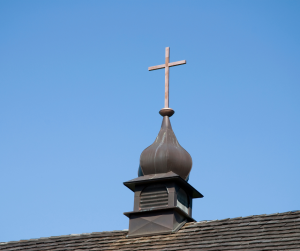 We know that when you think of doing ministry, you’re probably not envisioning inspecting your roof, replacing filters, and making sure gutters are clear.
We know that when you think of doing ministry, you’re probably not envisioning inspecting your roof, replacing filters, and making sure gutters are clear.
But each of these tasks is part of keeping your building and grounds in order. A church that is taken care of can better serve its congregation the community. The last thing anyone should worry about when they come to church is their safety.
Doing routine maintenance needs to be something your church does, like clockwork. If you’re not doing it now, that’s okay. We’re here to walk you through a few basics to get you started.
Keeping Your Roof Well Maintained
- The roof is typically the most expensive (and critical) part of any building. Churches are no exception. And many churches don’t have the budget to manage costly roof problems.
- A routine inspection by your staff, and professional roofers, can prevent minor issues from becoming significant expenses.
- It’s a best practice to have a licensed roofer inspect your building at least once a year. If your church has a flat roof, it’s a good idea to get on a maintenance plan.
- If you or someone in your church inspect the roof, keep your eye out for a few things, such as nail pop-backs. These often arise during summer when heat causes the shingles to expand and nails to push up. Have a roofer come out and take care of any pop-backs you see.
- Loose shingles, damaged fascia, and other signs of damage are all indications that a roofer needs to be called.
- Trim back tree branches overhanging roof as needed to prevent damage caused by limbs scraping against shingles.
- Take a look inside your attic and see if you have proper ventilation. Lots of heat in attics can shorten the life of a roof.
- Don’t forget your gutters, downspouts, and flashing-all areas of potential leaks.
- By understanding the condition of your roof, you can properly budget for repairs or replacement.
Originally posted on Southern Mutual Church Insurance Company
This material is for informational purposes only. It is not intended to give specific legal or risk management advice, nor are any suggested checklists or action plans intended to include or address all possible risk management exposures or solutions. You are encouraged to retain your own expert consultants and legal advisors in order to develop a risk management plan specific to your own activities.
ChurchInsure is a division of Anchor Insurance Agencies specializing in the unique insurance and risk management needs of religious institutions. Visit our website to learn how we can serve you at anchor-insurance.com/churchinsure.


